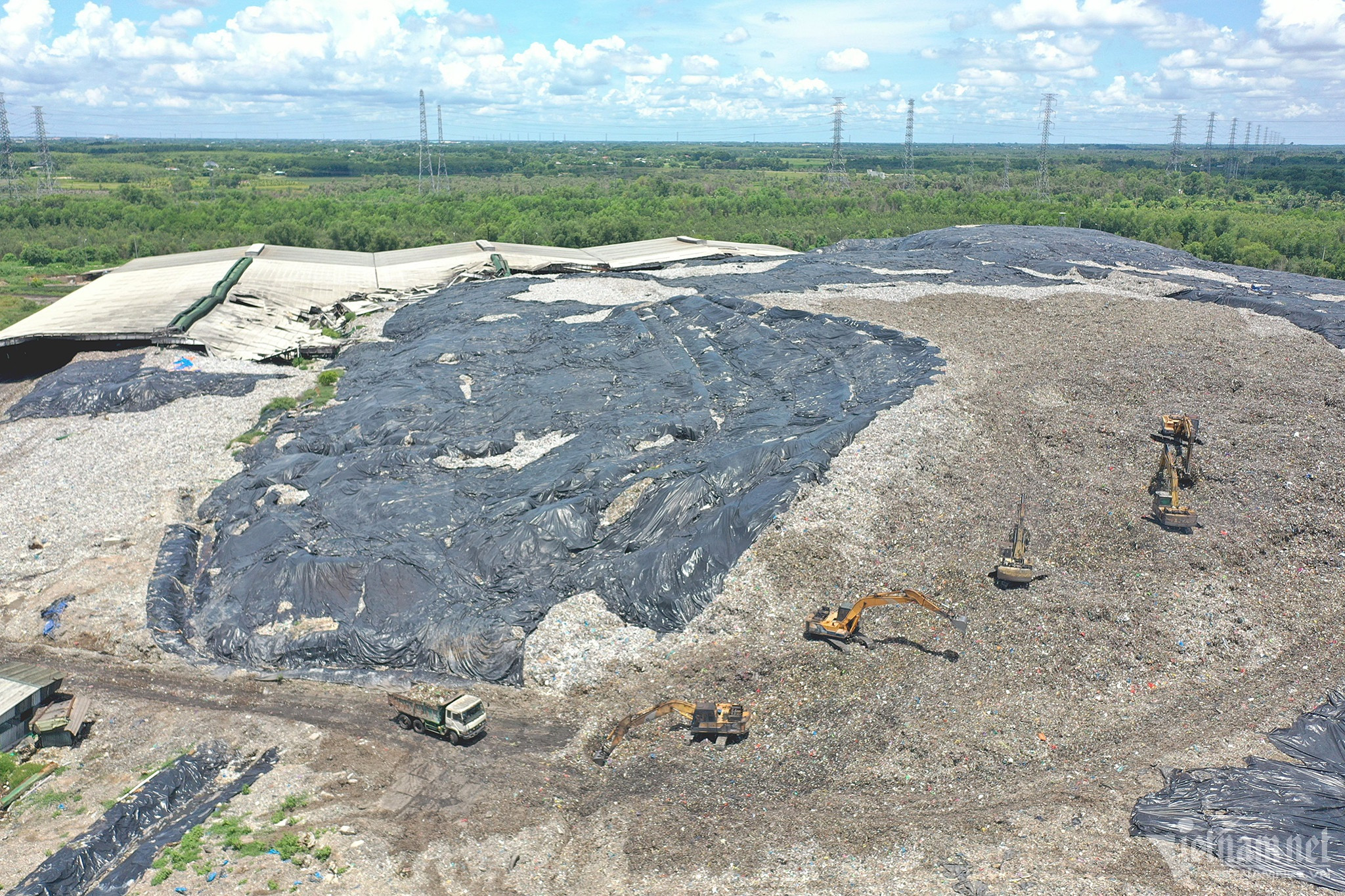
The two plants which were built in late 2019 in the Tay Bac Solid Waste Treatment Complex in Cu Chi District, were hailed as the city's first waste-to-energy plants which are expected to help effectively deal with the rising amount of waste in the city.
According to the investors, the Vietstar Joint Stock Company and Tam Sinh Nghia Investment and Development Company, their projects had a daily processing capacity of 2,000 tonnes of waste in their first phase of operation that would increase to between 4,000-5,000 tonnes of waste in the second phase. The Vietstar's plant has a total investment of USD400 million while Tam Sinh Nghia invested USD204 million in the first phase of their plant.
They are still dealing with 3,200 tonnes of waste daily utilising some old methods like burying, burning, and recycling in the Tay Bac Solid Waste Treatment Complex.
The operation of the complex has caused serious environmental pollution to surrounding areas as the amount of waste has grown bigger every day.
A local man, Nguyen Van Be, said that the lives of over 20 households who live some 200 metres from the Tay Bac solid waste treatment complex have been badly affected.
"Noise and dust from hundreds of rubbish trucks, smoke from the plants' huge chimneys, and bad odour are torturing us every day," Be said. "Our farms have also been spoiled and underground water contaminated by the wastewater. We've reported the problem to local authorities and we hope that the problem can be solved as soon as possible."
Many other residents have also complained that the bad odour can spread as far as 10 kilometres.
HCM City currently generates between 9,800-10,000 tonnes of solid waste daily, of which 72 percent is buried and the rest is burnt, recycled or used to produce fertilizer.
Explaining the situation, the city Department of Natural Resources and Environment said that some problems including the low competence of investors, lack of capital, and shortcomings in policies, have led to the slow progress at some waste treatment projects.
"We're trying to solve the problems and hope that the two waste treatment plants in Cu Chi can start their waste-to-energy operation by the end of 2025," the department said.
Source: Dtinews